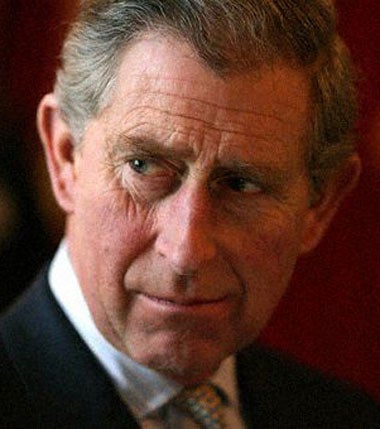Charles's legal bid to protect confidentiality backfires as court releases private journal

An astonishing insight into the Prince of Wales's view of the world, including both criticism and praise for Tony Blair, politically-charged complaints as well as his attachment to the days of Empire, was released to a court yesterday.
Embarrassingly for both sides, in the document disclosed in the High Court, the Prince describes Mr Blair as one of a breed of politicians who take decisions based on "market research and focus groups, on papers produced by political advisers ... none of whom will have ever experienced what it is they are taking decisions about.'' But he also says Mr Blair was "enjoyable" to talk to, listened to what Prince Charles had to say and was anxious to grapple with the problems of Britain's identity.
The 3,000-word document, which the Prince called "The Handover of Hong Kong or The Great Chinese Takeaway", was written following his attendance at the ceremony to hand over the colony to China in 1997.
In it, he complains about being seated in club class on the flight, describes the Chinese leaders as "appalling waxworks", outlines his fears for the future of Hong Kong - a "remarkable" example of colonialism - and expresses his sadness at the decommissioning of the Royal Yacht, Britannia, as well as his hope that the 300-year tradition of a British military presence in the area can be maintained.
The Hong Kong journal is one of eight diaries the Prince claims were handed over to The Mail on Sunday by one of his former employees, whose identity has not been released. The newspaper published extracts last November and the Prince is now suing Associated Newspapers for breach of copyright and confidentiality. He is also asking for the return of the papers, which may also provide some clues as to who disclosed them.
It was released to journalists yesterday after applications by other media organisations, although the judge and lawyers stipulated it could not be removed from the court, copied, or reproduced in its entirety.
The High Court action, a rare and risky move for the Royal Family, now appears to have rebounded badly on the Prince. The Hong Kong document graphically demonstrates the belief of Prince Charles, as related to the court in a statement by his former deputy private secretary, Mark Bolland, that he sees himself as a "dissident", standing up for unpopular causes and constitutionally bound to make his views known to the Government, despite the tradition of a non-political monarchy.
The Prince's lawyers have now twice been forced into the release of documents they had previously sought to keep secret. On Tuesday, Mr Bolland's statement was read to the court and he is expected to give evidence for The Mail on Sunday. In it he described how the Prince regularly disseminated his views to government ministers, official bodies and his own staff. Lawyers for The Mail on Sunday argued yesterday that this undermined the Prince's case. It was also pointed out that Jonathan Dimbleby, the Prince's official biographer, had been given access to both his archive and the journals.
Although the Prince's lawyers said yesterday they now had no objections to the release of the Hong Kong document, since their argument was over the principle of breach of confidence, the disclosure of its contents will fuel criticism that by commentating on political issues, Charles is acting unconstitutionally.
As well as the Prince's personal relations with Mr Blair, the frankness of the views disclosed about Chinese politicians are likely to be highly embarrassing for other government ministers and the Foreign Office. The Prince talks scathingly about the "ridiculous rigmarole" of meeting the Chinese President, of Soviet-style displays during the handover ceremonies, of the "goose-stepping" Chinese soldiers and fears that the Chinese authorities are corrupt and would arrest the civil leader, Martin Lee.
Despite the Royal Family's public support for the decision to decommission Britannia, the journal discloses his private unhappiness at the decision, which he likens to the ending of British rule in Hong Kong.
And the Prince's comments about being placed in club class on the outbound BA flight - "It took me some time to realise that this was not first class (!) although it puzzled me as to why the seat seemed so uncomfortable. Other dignitaries were all ensconced in First Class immediately below us. Such is the end of Empire." - will also add to suggestions of grandness in the wake of earlier disclosures about the size of his retinue and the amount of his luggage on foreign trips.
